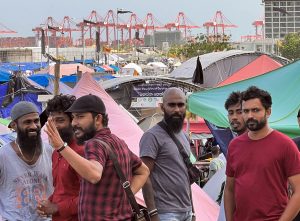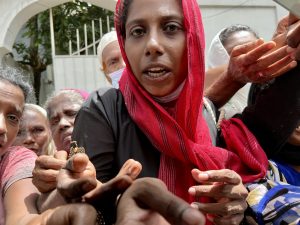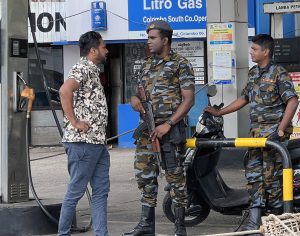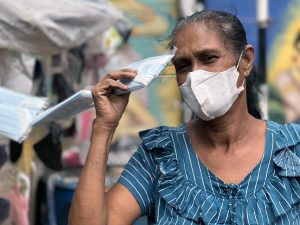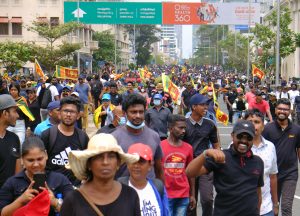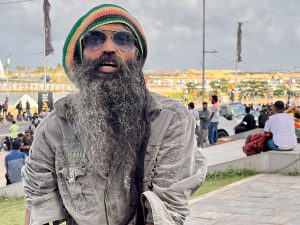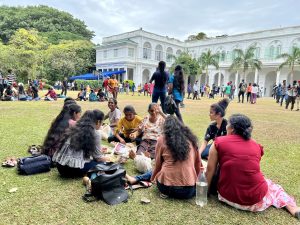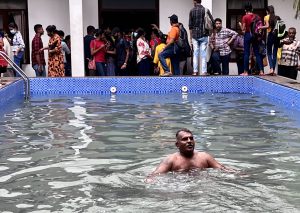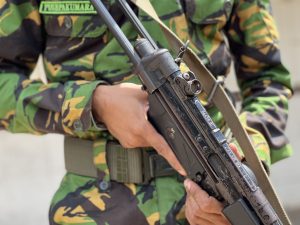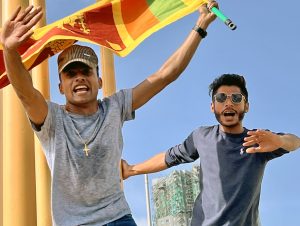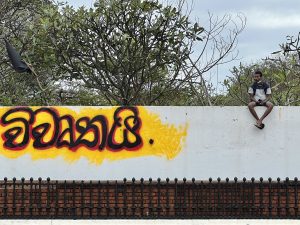COLOMBO — The United Nations and the United States have condemned the heavy-handed tactics of the Sri Lankan government after the army and police forcibly dismantled a protest camp of tents and makeshift homes, the focal point of protestors for more than three months.
Demonstrators had said they would voluntarily leave the site after Gotabaya Rajapaksa fled the country and resigned as president but his successor, former Prime Minister Ranil Wickremesinghe, lost patience and ordered their removal.
“We are alarmed by the unnecessary use of force reportedly employed by Sri Lanka’s security forces to break up a protest camp near presidential offices in Colombo,” said Jeremy Laurence, spokesman for the U.N. Human Rights Office spokesperson Jeremy Laurence.
“The raid on the camp sends a chilling message to peaceful protesters, including elsewhere in the country. Everyone has the right to peacefully demonstrate and to publicly express their frustration over the economic and political crisis,” he said.
Wickremesinghe is also charged with negotiating a financial bailout with the International Monetary Fund (IMF) after Sri Lanka declared bankruptcy. Formal submissions are expected next month and the country needs at least $7 billion for the rest of this year.
The Sri Lankan economy has crumbled under a debt burden of $51 billion, holding foreign reserves of just $1.7 billion. The country cannot afford to import oil, resulting in acute fuel shortages, while hyperinflation has priced essential goods beyond the budgets of ordinary Sri Lankans.
On the black market, petrol is selling for three to five times as much as at the pump – where gasoline is fetching about $1.50 liter – but is often cut with fluids like turpentine. Consumers can only buy one tub of butter a day and the price of imported tinned pears is about $10.
The situation is far worse in the countryside where the distribution has collapsed and essential items like rice and medicine are proving impossible to obtain, even at exorbitant prices.
Wickremesinghe, a former six-time prime minister, is also unpopular among hardline protestors who see him as too close to Rajapaksa and his family, which ruled Sri Lanka for about 17 years.
The new president has also named Rajapaksa loyalists to his cabinet including an old ally and former classmate, Dinesh Gunawardena, as the new prime minister. Some fear that could upset efforts to launch an independent investigation into the family’s wealth.
Wickremesinghe has accused the previous government of “covering up the facts” that led to the crisis but added the country had to pull itself up by the bootstraps and it was possible for Sri Lanka to have a functioning economy by 2024.
Reports say two journalists and two lawyers were among those attacked by soldiers after they smashed through the protest camp. Security forces have arrested more than 100 people to date.
“Sri Lanka’s international partners should send the message loud and clear that they can’t support an administration that tramples on the rights of its people,” said Meenakshi Ganguly, South Asia director at Human Rights Watch.
China is among Sri Lanka’s largest lenders, after Japan and the Asian Development Bank. U.S. Treasury Secretary Janet Yellen has urged China to help in restructuring Sri Lanka’s debt.
President Xi Jinping said over the weekend that he believes Sri Lanka would move towards economic and social recovery and that he was “ready to provide support and assistance to the best of my ability to President Wickremesinghe and the people of Sri Lanka in their efforts.”













